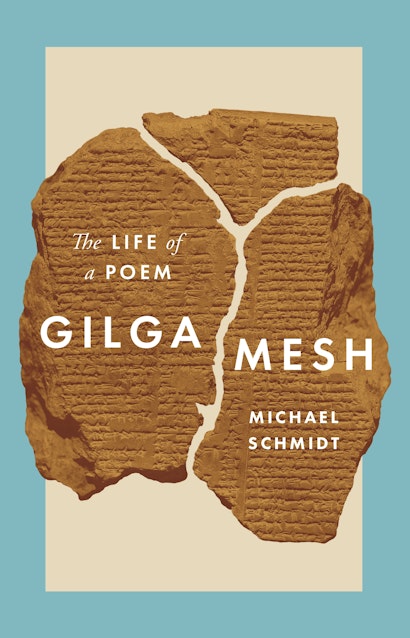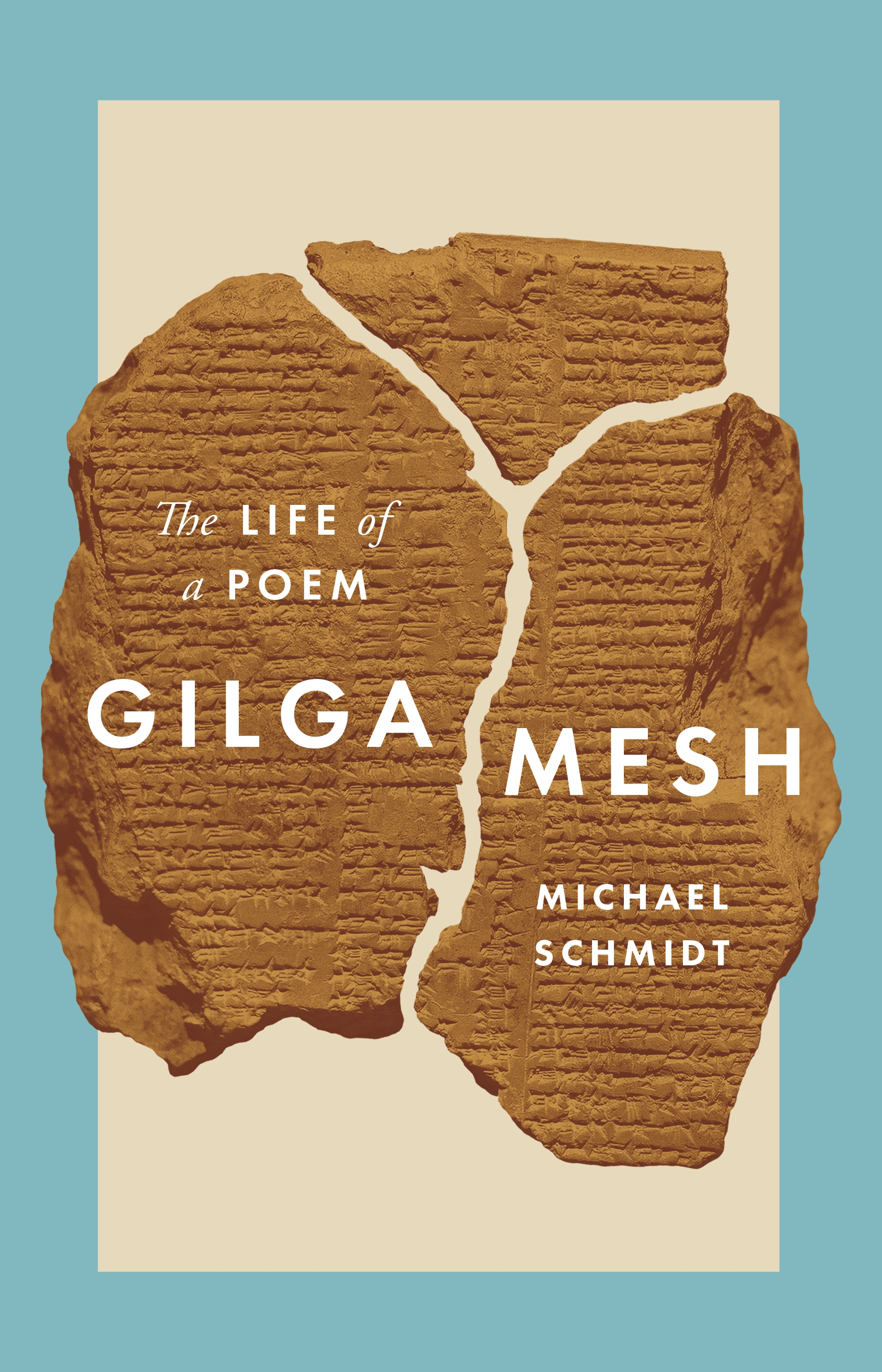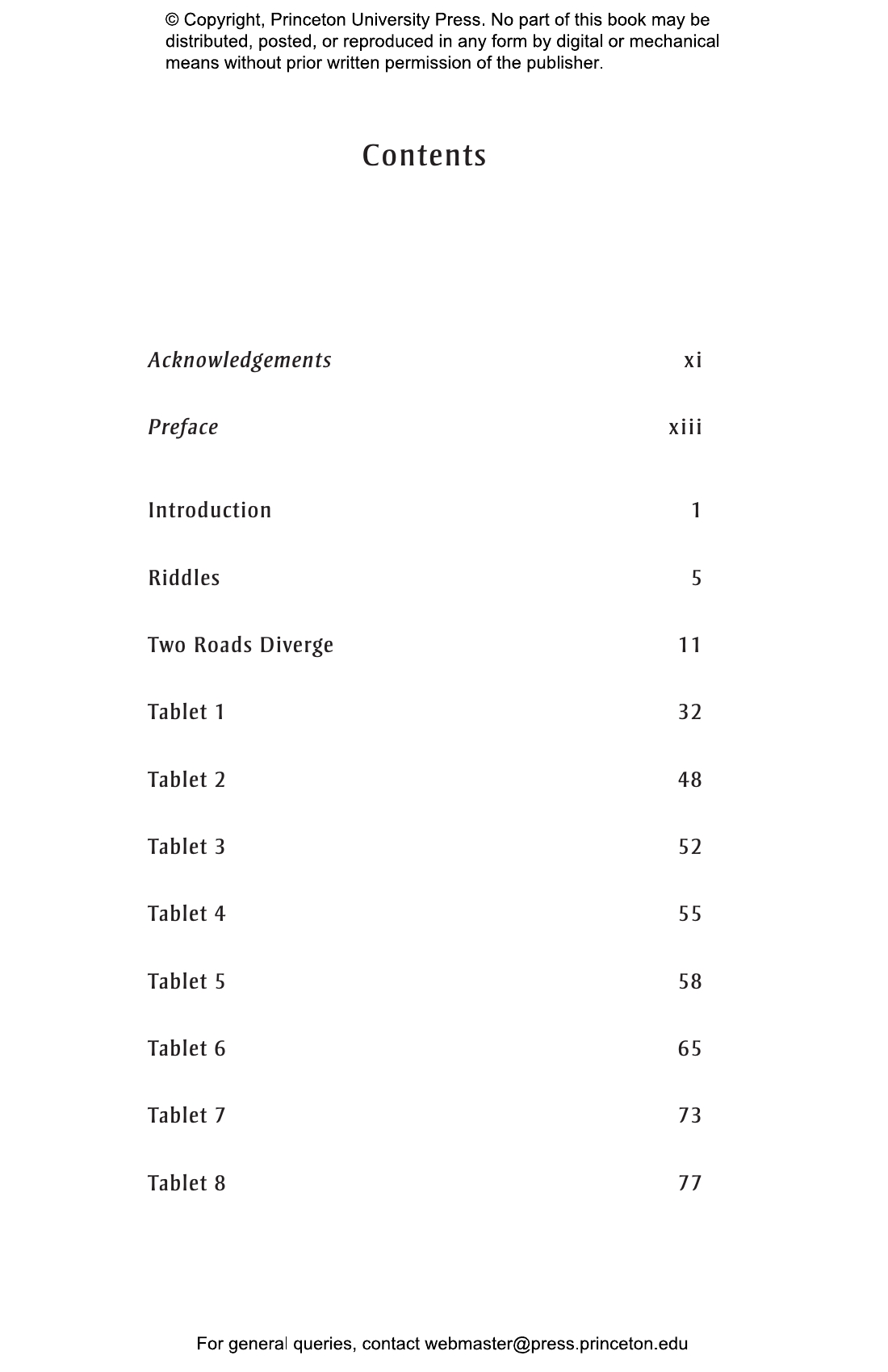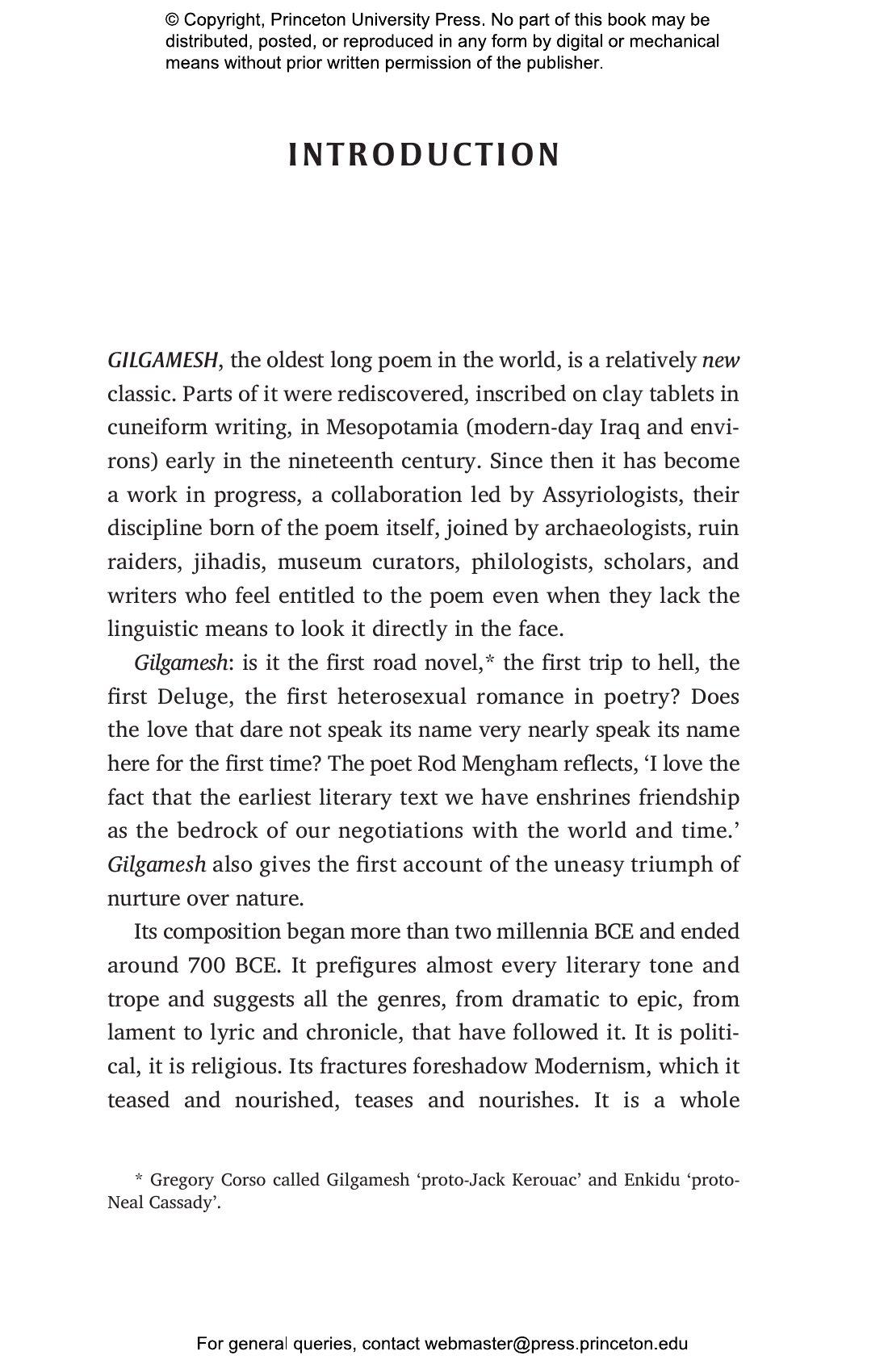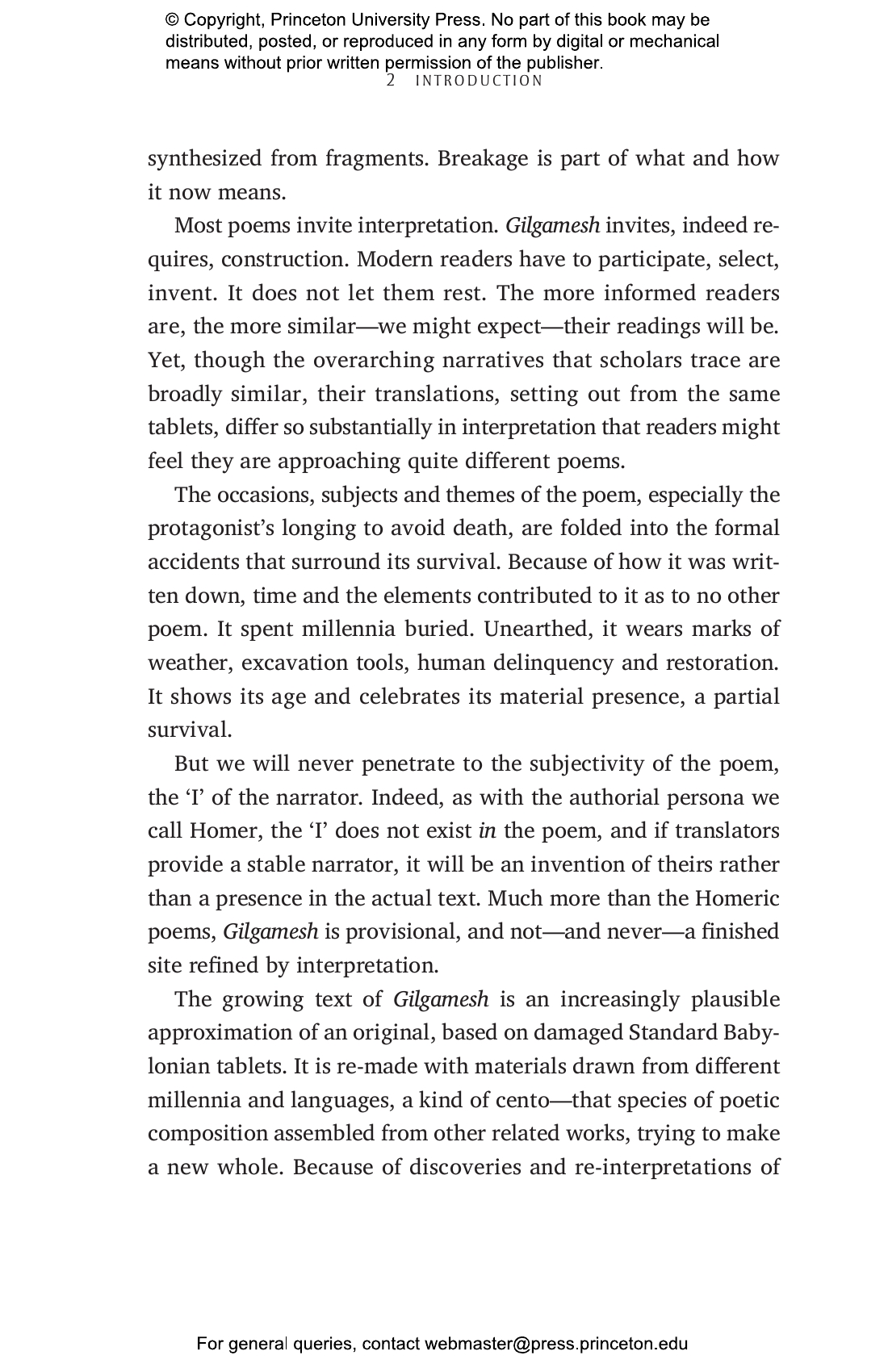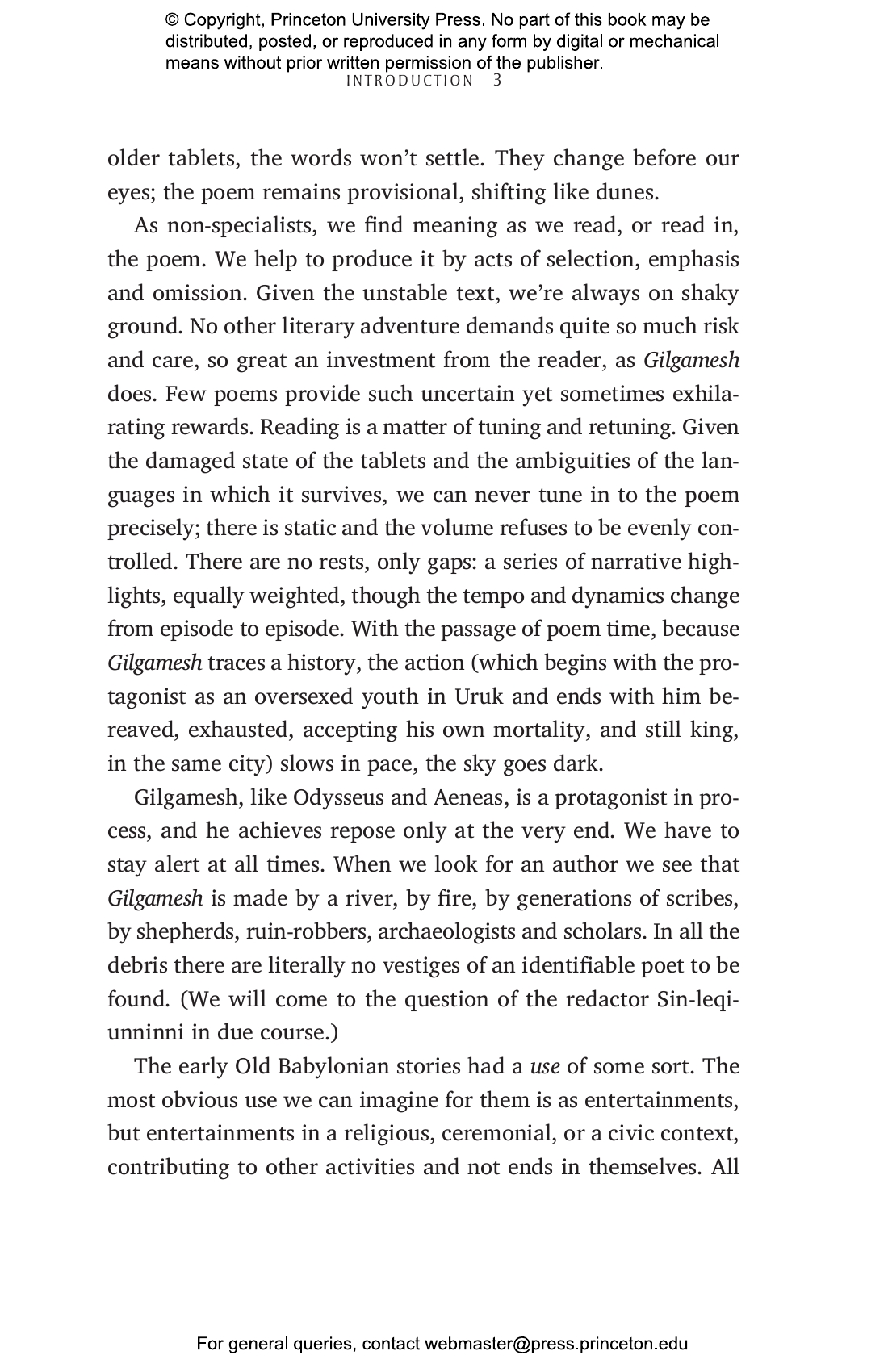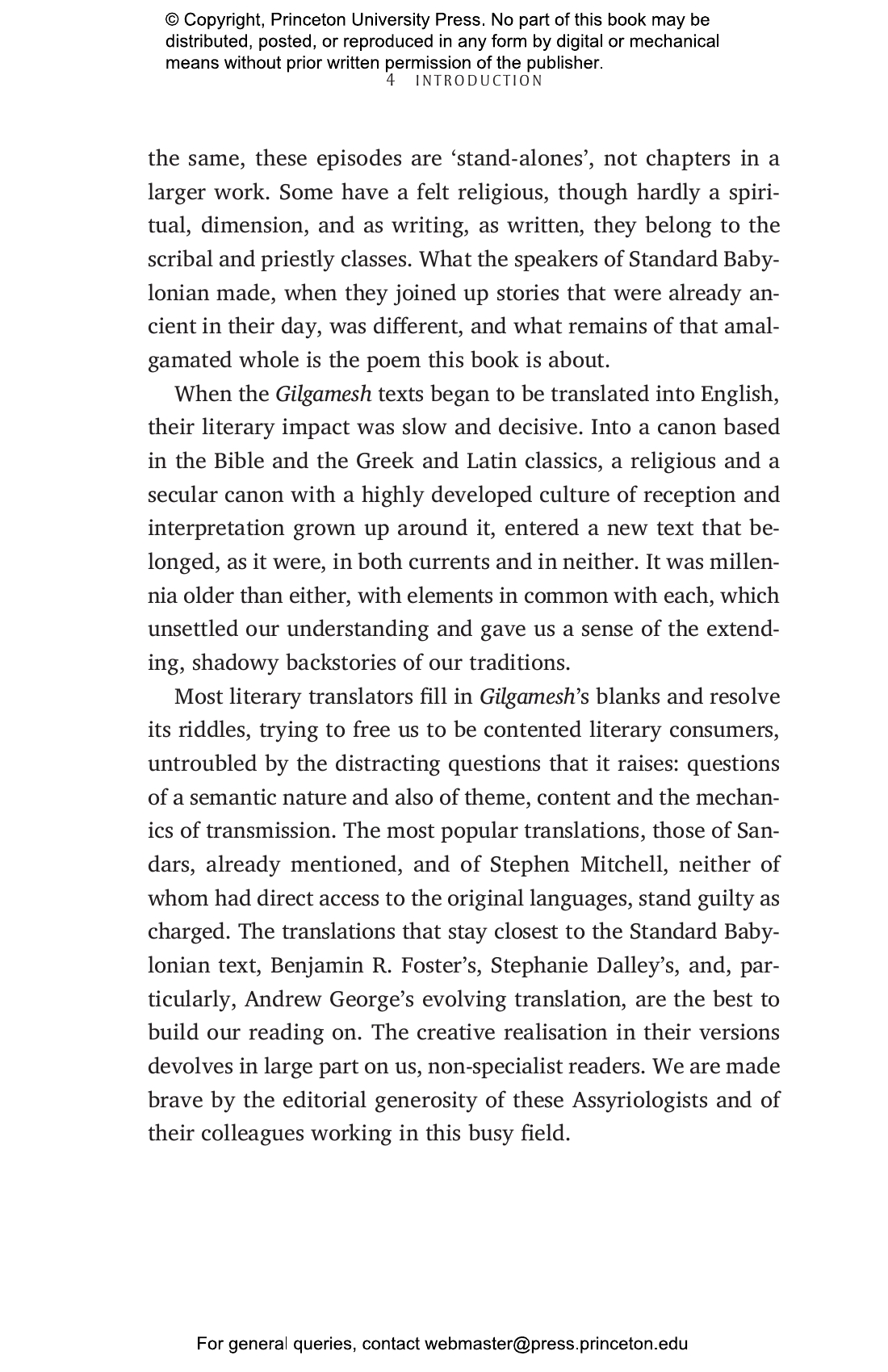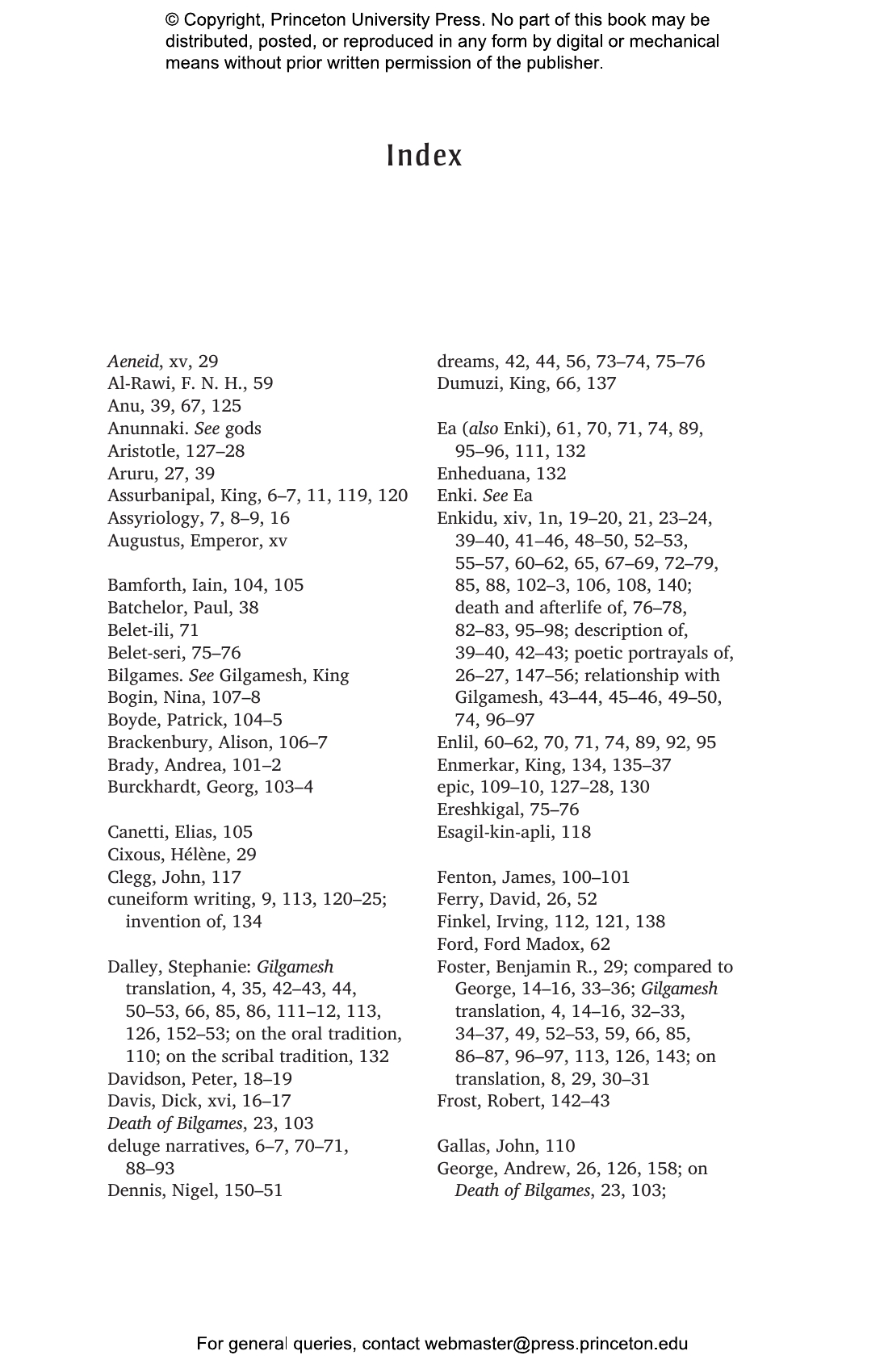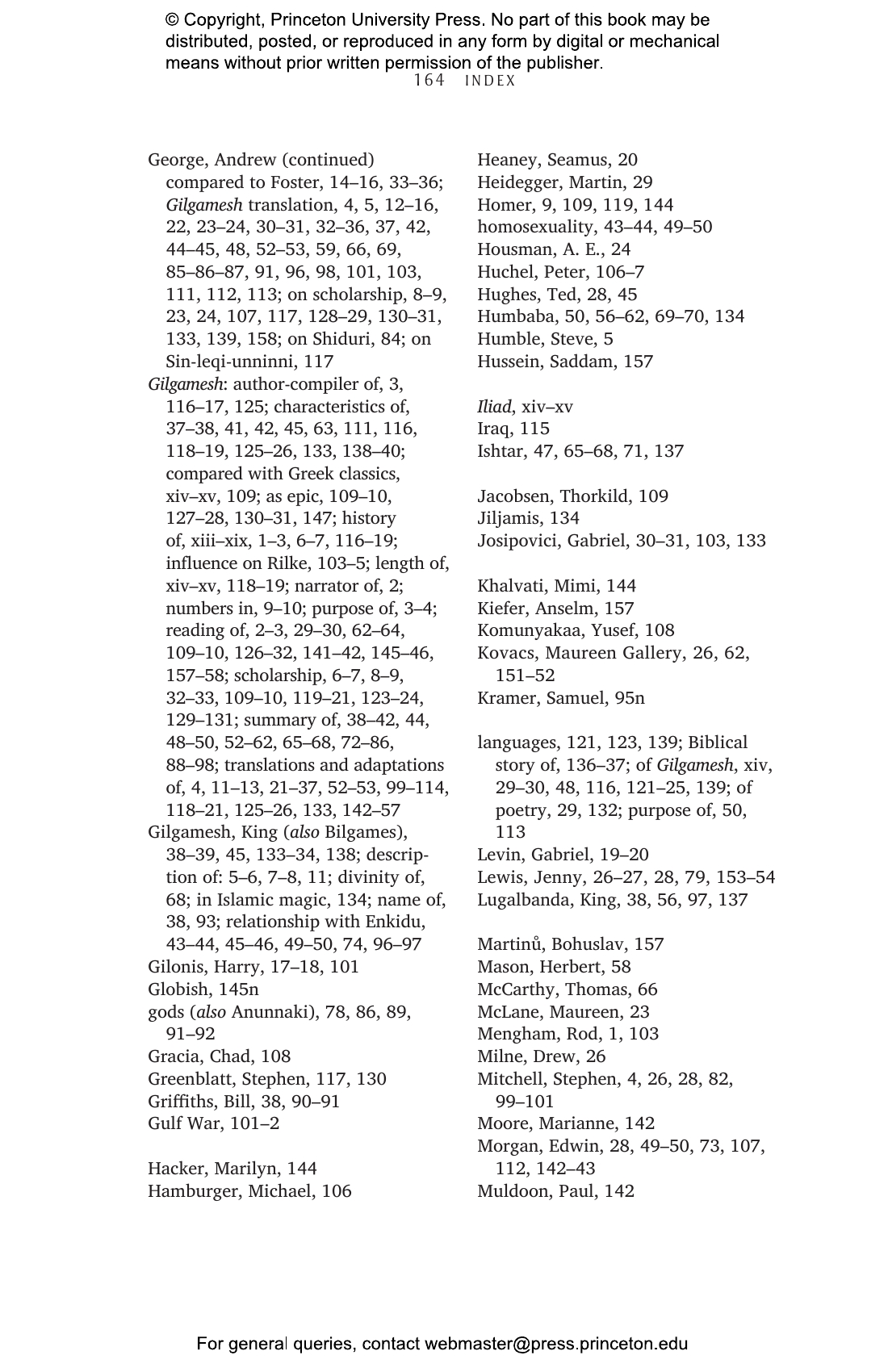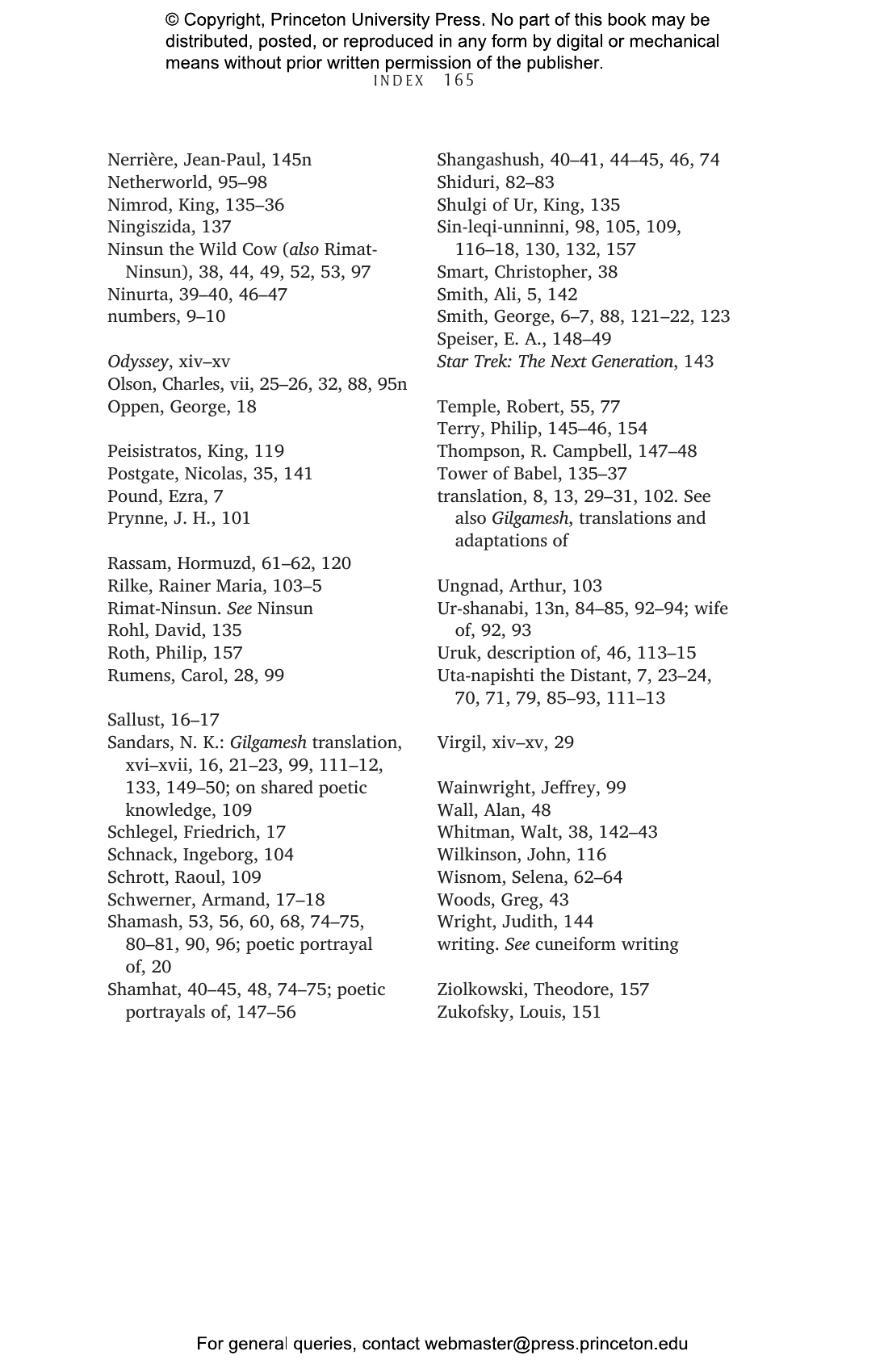Gilgamesh is the most ancient long poem known to exist. It is also the newest classic in the canon of world literature. Lost for centuries to the sands of the Middle East but found again in the 1850s, it tells the story of a great king, his heroism, and his eventual defeat. It is a story of monsters, gods, and cataclysms, and of intimate friendship and love. Acclaimed literary historian Michael Schmidt provides a unique meditation on the rediscovery of Gilgamesh and its profound influence on poets today.
Schmidt describes how the poem is a work in progress even now, an undertaking that has drawn on the talents and obsessions of an unlikely cast of characters, from archaeologists and museum curators to tomb raiders and jihadis. Fragments of the poem, incised on clay tablets, were scattered across a huge expanse of desert when it was recovered in the nineteenth century. The poem had to be reassembled, its languages deciphered. The discovery of a pre-Noah flood story was front-page news on both sides of the Atlantic, and the poem’s allure only continues to grow as additional cuneiform tablets come to light. Its translation, interpretation, and integration are ongoing.
In this illuminating book, Schmidt discusses the special fascination Gilgamesh holds for contemporary poets, arguing that part of its appeal is its captivating otherness. He reflects on the work of leading poets such as Charles Olson, Louis Zukofsky, and Yusef Komunyakaa, whose own encounters with the poem are revelatory, and he reads its many translations and editions to bring it vividly to life for readers.
"An insightful, stimulating book sure to breathe new life into the would-be immortal king."—Publishers Weekly
"[A] wonderful book . . . Schmidt’s argument for the poem as poetry, in the modern sense—concrete, unglazed, tough on the mind—is touching and persuasive. I read the book spellbound, in one sitting."—Joan Acocella, New Yorker
"For anyone interested in language, history, or the power of a great story, this biography of a poem assures endless discoveries."—Jeva Lange, The Week
"Schmidt’s book deeply enriches our appreciation of a work already rich. A solid addition to all collections."—Thomas L. Cooksey, Library Journal
"[I]f all literary studies were written so engagingly, more people would read them . . . If you have never read Gilgamesh before, Schmidt could be Virgil to your Dante, and if you have read it before, be prepared to let it be explicated in a new and lively way and to flow over your mind like quicksilver."—John Butler, Asian Review of Books
"Michael Schmidt’s Gilgamesh, the Life of a Poem, is stimulating, informative and elegantly written. It is to be hoped that over time it will be recognised as an indispensable guide for all future readers of Gilgamesh."—David Cooke, Manchester Review
"In Gilgamesh: The Life of a Poem, Michael Schmidt, a British poet and novelist, explains how the special character of “Gilgamesh” has had an outsize influence on modern writers . . . Its “anonymity” invites readers’ responses more powerfully than other ancient works, and this book is, in the main, an exploration of those responses, obtained by Mr. Schmidt through a survey sent to 50 modern poets. . . . [Schmidt’s] freshly framed observations help renew one of the world’s oldest surviving tales"—James Romm, Wall Street Journal
"[Gilgamesh] is well-written and reads like having a chat with a down-to-earth friend who happens to be a literary scholar . . [R]ather than trying to choose which translation to read, one should start by reading Schmidt’s book. It offers an intelligent but relatable introduction to Gilgamesh as well as to the scholarship and modern artistry which swirls around the nearly 4000 year old poem."—Kelly Hydrick, Root & Press
"[Gilgamesh: The Life of a Poem] offers us an opportunity to consider not just the rewards of tradition, but its very real risks. . . . Schmidt tries to preserve the integrity of a single beloved poem. In forcing us to go back to the basics of meaning-making, Schmidt works toward a hermeneutics of modesty and care, pointing toward a more expansive, and less imperialist, approach to world literature. . . . To translate and read Gilgamesh as we read the Iliad or the Aeneid would be to neutralize the poem — and, for Schmidt and the many contemporary poets whose voices he brings into his book, to miss an opportunity to reimagine our literary origin story, or to posit a plurality of stories rather than one continuous tradition."—Max Norman, Los Angeles Review of Books
"[Michael] Schmidt presents an extended reflection on Gilgamesh, exploring the challenges and opportunities it offers modern readers. . . . Beginning with the challenge of translating without knowing the original languages, Schmidt uses his correspondence with the translators of Gilgamesh as a model to challenge modern, Western habits of interpretation and approach reading the poem on its own terms: i.e., not as an ur-Iliad but as something unique. Throughout, Schmidt emphasizes Gilgamesh’s alterity, its fragmentariness, its authorlessness, the provisional nature of the text, and its refusal to fit familiar aesthetic and generic categories. This important work fills a gap between translations/introductions and the scholarship of Assyriology."—P. E. Ojennus, Choice Reviews
"Michael Schmidt's book is a lively and instructive read, full of insight and response that bring a new voice to the poem's reception."—A. R. George, author of The Babylonian Gilgamesh Epic
"This is a remarkable and hugely worthwhile book. I cannot imagine a better introduction to Gilgamesh, but it is also something more than that. Schmidt has written a stimulating literary study that makes this oldest of poems feel new, exciting, and on the move."—Peter McDonald, translator of The Homeric Hymns
"A brilliant book, brilliantly executed. Michael Schmidt's unparalleled love for poetry, ancient and modern, brings to life the continuing vitality and importance of the world's earliest surviving poem, with fascinating new insights on every page. A real treasure."—Ruth Padel , author of Darwin: A Life in Poems
"A great pleasure to read. In this illuminating book, Schmidt sheds a kaleidoscopic light on Gilgamesh, its journeys, and its possible futures. All in a way that is seemingly effortless and without strain, a rare thing in critical discourse."—Philip Terry, author of Dictator
